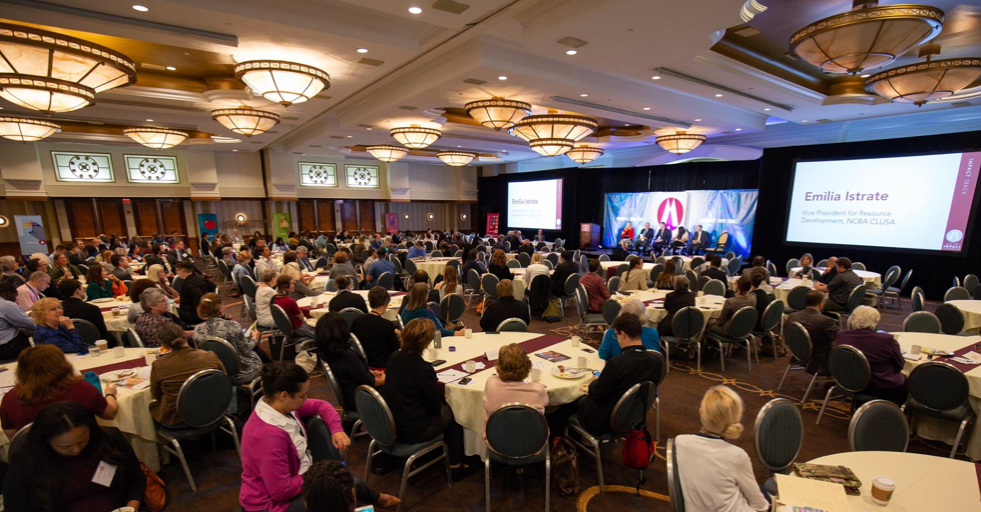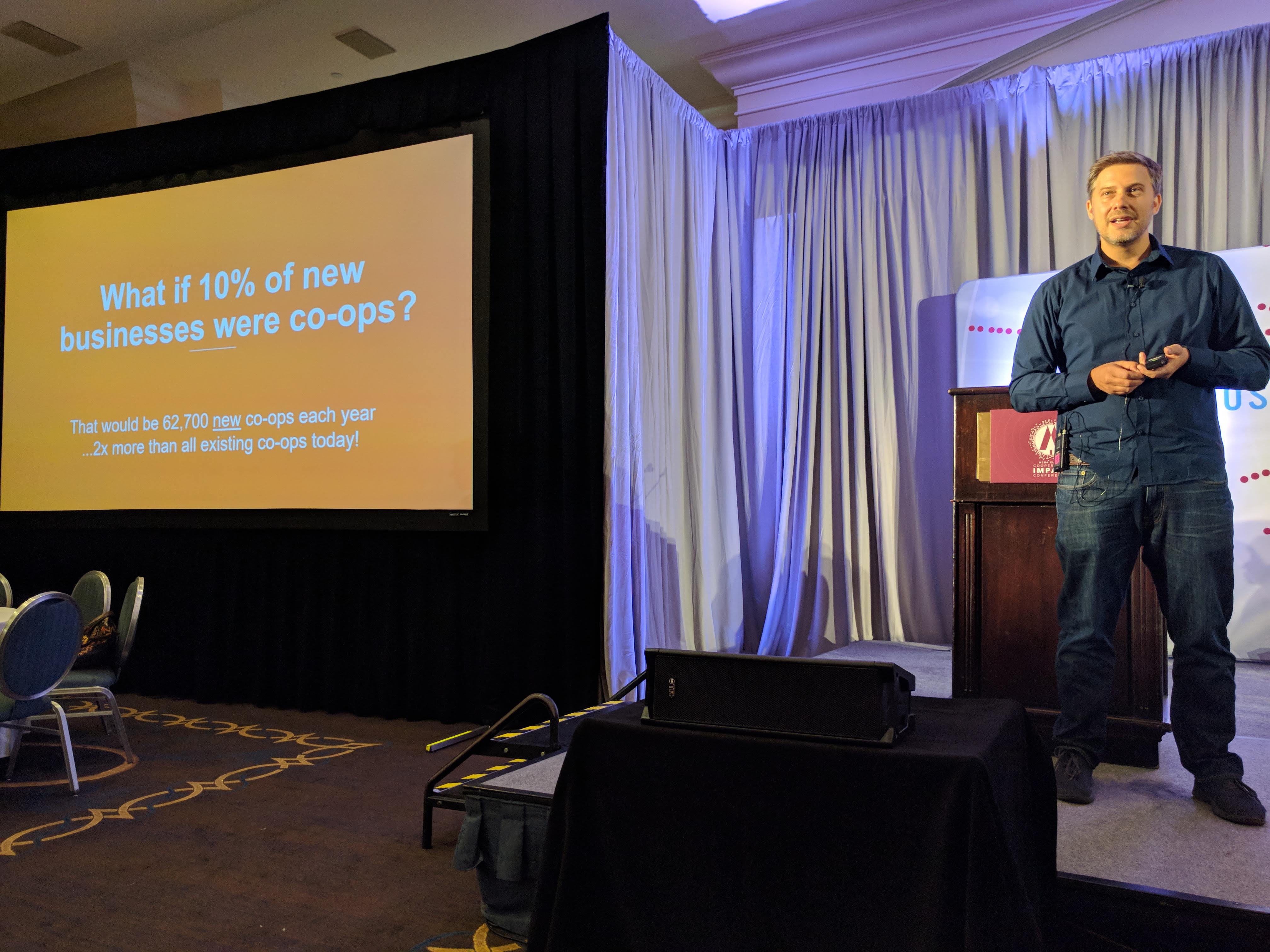Our Executive Director, Noemi Giszpenc, reflects on the 2019 Cooperative Impact Conference

My colleagues were buzzing with excitement at the choice of plenary keynote for the Cooperative Impact Conference at the beginning of October–Felicia Wong of the Roosevelt Institute was sure to deliver a zinger. And she did, calmly laying out item by item how “free market fundamentalism”, by serving only company shareholders, has failed to produce any of its promised results in the forty or so years it’s been tried. Even economic growth is slower, not to mention worsening inequality, stagnant wages, crushing market power, and a swiftly degrading environment. Against this backdrop, her message to us was clear: since the purpose of cooperatives is to serve members and the community, we are already doing what the Business Roundtable has lately called for all businesses to do, that is, make life better for people.
But the conference was not designed to let cooperatives rest on their laurels. Yes, cooperatives do have a more beneficial impact on the community than do conventional businesses, as the research from the Urban Institute is showing. But how can that impact increase? Many of the panels and workshops focused on ideas related to scale and networking that take what one co-op alone can do and transform it into an amazing level of what we can do together.
Start.coop founder (and CDI Board Chair) Greg Brodsky shared his pilot accelerator program, which takes a cohort of entrepreneurial cooperators through a rigorous business planning and leadership development process. Our national partner Paul Bradley demonstrated how ROC USA was able to develop a process for assisting residents in manufactured home communities to establish resident-owned cooperatives that started in New Hampshire into a national program that is growing exponentially.
Our own Rob Brown, director of Business Ownership Solutions, participated in a panel on ecosystems moderated by Carolyn Edsell-Vetter, CFNE loan officer and CDI Board Vice-Chair. In Maine, we’ve been developing an ecosystem that can sustain co-ops not just with the technical assistance we can bring, but also assistance from local community economic developers, a peer-to-peer support and advocacy network, and beneficial state policies. The sky’s the limit for what co-ops can do when they work together.
That said, what co-ops choose to do matters. If co-ops choose to look only inward at current members, the future is in peril. All organizations must look out and see the larger community in which they function. For too long, institutions have reinforced entrenched inequality along racial, gender, class and other lines. Such inequality is incompatible with the democratic ideals of co-ops. It’s also poor planning! So ask yourself the questions Mo Manklang, Communications Director of the US Federation of Worker Co-ops suggested: are young people also in your leadership? Are you investing in hearing their voice and developing their skills?
The world is facing a crossroads. The path we’ve been on, as Felicia Wong ably showed, is leading to less freedom and opportunity for the vast majority of people. For co-ops to succeed at demonstrating a different path, they need to find ways to join together, flex their collective muscles, and make the movement about a better life for all people.

